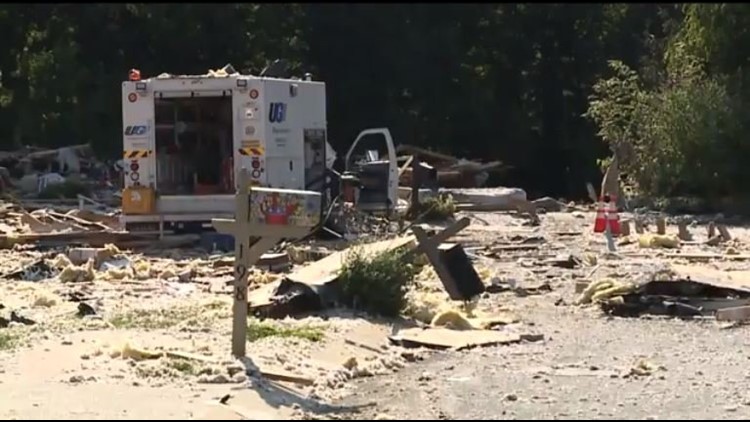LANCASTER COUNTY — The wife of a utility worker killed in a 2017 gas explosion at a home in Millersville has filed a wrongful death lawsuit against Honeywell International and other defendants, accusing them of causing the deadly blast.
Richard Bouder, 54, of Lancaster, a worker with UGI Utilities, was killed in the July 2, 2017 blast that leveled one home, injured three other people and caused a total of four houses in the Springdale Lane development to be condemned.
His widow, Kim Bouder, is represented by Ross Feller Casey, LLP, which filed the lawsuit.
The lawsuit also names PPL Corporation and PPL Electric Utilities as defendants, along with Contractors Group, Inc.
The lawsuit alleges that Honeywell’s Permalock mechanical tapping tee, which connected the natural gas line to the home, was defectively designed and sold to consumers without sufficient warnings or instructions for installation. The lawsuit claims that the defects rendered the tapping tee unreasonably dangerous and unsafe, because it was overly prone to becoming unsecured from the main gas line — which, in turn, led to the severe and explosive gas leak.
The suit also alleges that Contractors Group, Inc., of Wilkes-Barre, failed to properly install the tapping tee.
PPL Corporation and PPL Electric Utilities Corporation are named as defendants because the power was not shut off to the house and the neighborhood until after the explosion. The lawsuit claims PPL was negligent because it failed to ensure that a proper policy was in place for quickly shutting off electricity during a known, significant gas leak with explosive levels.
The lawsuit alleges that the explosion occurred due to defects in the tapping tee, which caused explosive levels of gas to leak. When the gas was ignited, it caused an explosion that destroyed the home and killed Bouder. The lawsuit also alleges Honeywell knew of the defects with the tapping tee, which were responsible for at least two other prior gas leak explosions, including one that killed another person.
The National Transportation Safety Board has been investigating the explosion in Millersville. In June, the NTSB issued a Safety Recommendation Report that attributed the gas leak to deficiencies in Honeywell’s installation instructions, as well as fractures in the nylon bolts of the tapping tee. The NTSB recommended that Honeywell update the tapping tee’s assembly instructions with more detailed information to ensure correct installation and prevent gas leaks.
“We will prove that Honeywell knew that the tapping tee was defective, both in its design and instructions, and that Honeywell was aware of the tendencies for the product to cause a catastrophic and fatal explosion from a natural gas leak,” said Matt Casey, one of two Ross Feller Casey attorneys representing Kim Bouder, in a press release announcing the lawsuit. “This product never should have made its way to the market, and Honeywell failed to take sufficient actions to remedy the defects. Kim Bouder’s husband went to work that day and never came home.”
The lawsuit alleges that the tapping tee was defective and hazardous because it “utilized nylon bolts as its connection that were deficient in strength and overaly susceptible to failure, fatigue and fracture with normal and expected usage.”
Additionally, the lawsuit says, instructions provided by Honeywell never specified what torque levels or specific tools should be used to safely install the tapping tee, which left installers without critical information to properly secure the tapping tee to a main gas line.
The lawsuit claims test performed on the tapping tee after the explosion showed the nylon bolts were fractured and the tapping tee had not been properly secured to the gas line during installation, resulting in the gas leak that led to the explosion.
The lawsuit, filed in the Philadelphia Court of Common Pleas, seeks compensatory and punitive damages against Honeywell relating to Bouder’s death.



